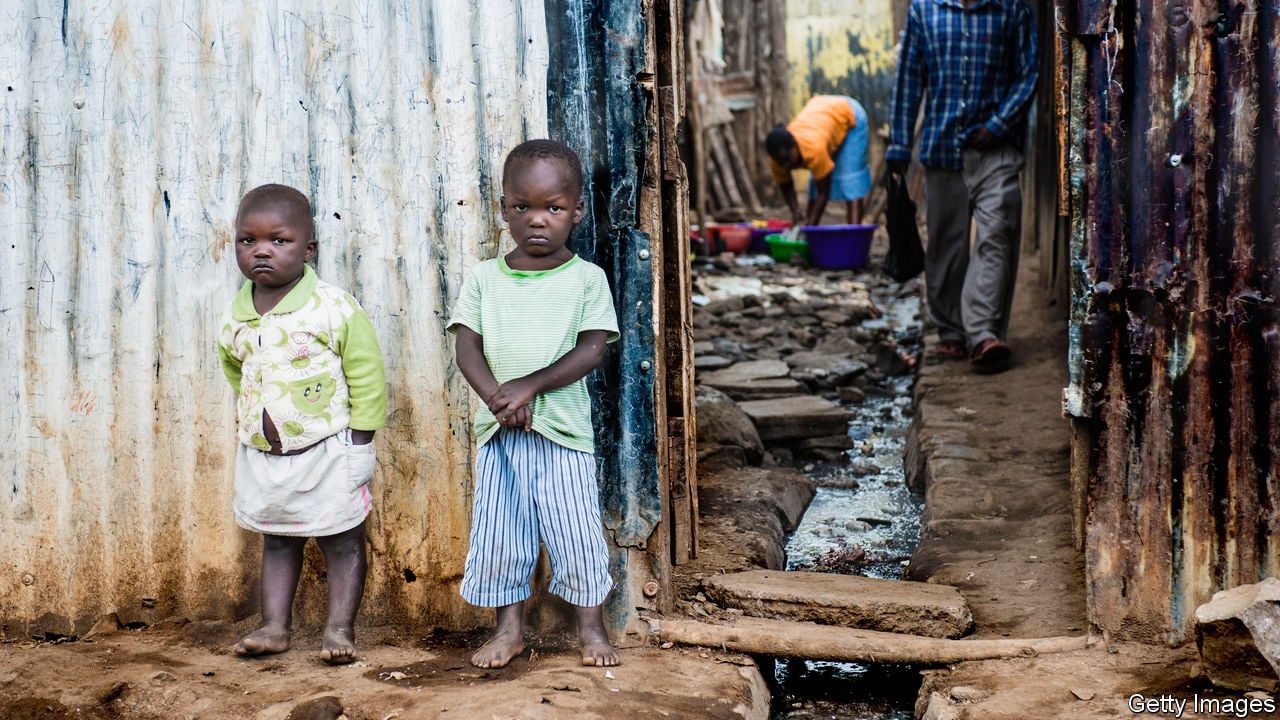News
NECA wants monitoring of inflation dynamics

The Nigeria Employers’ Consultative Association (NECA) has called for a close monitoring of inflation dynamics, to promote economic resilience and inclusive growth.
In a statement on Tuesday, its Director-General, Mr Adewale-Smatt Oyerinde, also sought assessment of the impact of currency movement and advocated evidence-based policies.
His statement came on the backdrop of the Consumer Price Index released by the National Bureau of Statistics (NBS) for March 2024 that reveals another increase in the inflation rate.
According to NBS, the inflation rate surged to 33.01 per cent, an increase from 31.7 per cent recorded in February, indicating a 1.31 percentage point increase over the period.
Oyerinde said: “While the tightening measures of the Central Bank of Nigeria have led to the recent appreciation of the Naira, there is noticeable a decelerating increase in the recent inflation figure.
“With time and the introduction of supplementary measures from the fiscal authority addressing supply chain fundamentals, the inflation figure would begin to decline.”
The director-general said that in spite of currency appreciation typically dampening inflation by reducing import costs, other factors were exerting stronger upward pressure on prices.
He said that supply chain disruptions, logistical challenges and rising production costs continued to drive up prices across various sectors, amplifying inflationary expectations.
“However, there is hope that once the Dangote refinery commences production and distribution of petroleum products, transportation costs and other production expenses will significantly reduce, “ he said.
Oyerinde urged policymakers to adopt a holistic approach to address inflationary pressures and promote economic stability.
According to him, this includes implementing prudent monetary and fiscal policies to address supply-side constraints.
“Also, to enhance productivity and stimulate investment in critical sectors such as agriculture and infrastructure.
“There is need for government intervention at all levels to address factors disrupting food supply, support domestic firms to boost local production, and synergise monetary and fiscal policies effectively to combat inflation,“ Oyerinde said.
News
Benue Workers’ welfare topmost priority — Gov. Alia


Gov. Hyacinth Alia, on Wednesday promised to continue to prioritise the welfare of workers in Benue State.
Alia made the pledge in a statement signed by his Chief Press Secretary, Tersoo Kula, on Wednesday in Makurdi.
The governor commended the workers for their immense contributions towards the overall development of the State.
He said the theme of the year 2024 International Labour Day, “Ensuring Safety and Health at Work in a Changing Climate,” was in line with his administration’s agenda of enhancing workers’ welfare and conditions of service.
Alia said he was already working towards achieving the objective of the theme, having renovated the State Secretariat and also provided a dedicated 33KVA transformer to ensure steady power supply and give the workers a healthy and conducive work environment.
According to him, apart from the prompt payment of workers’ salaries, his administration will continue to pay owed arrears, attend to issues of promotions and allowances and ensure training and retraining of the workers.
He charged the workers to always imbibe the culture of transparency, compassion, accountability and honesty.
He urged them to continue to support his efforts by delivering on their assigned roles as workers of the state, and to also remain apolitical at all times.
News
Extreme poverty plagues retirees in their golden years


By Toheeb Babalola
Ezekiel Olaigbe, 89-year-old, inherited Bricklaying – one of the well-paid oldest professions in Africa, from his deceased father decades ago. A common mentality of the earliest generations was to ensure that the first sons emulate their fathers’ steps and maintain the main family’s source of income. In those days, the bricklayers were treated like Kings in their local domains, many pretty ladies crushed and wished to be their wives. Because they were very rich.
The profession provided Olaigbe’s family a two-storey building at Salako Lawal Compound Labiran in the Ibadan North East Local Government. Since his elementary education, the young Ezekiel had been learning the rudiment of bricklaying and following his father to construction sites. At that age, he could mix sand with water which made his father’s work faster.
He, before the death of his father, had started helping residents to build shops and get contracts from reputable organisations. He also engaged in house sourcing and management. Eventually, he moved out of his father’s house to establish his own family.
“When my business was growing, I decided to relocate, married a wife and started having my own children. And stay far away from my father’s house. My Children went to standard schools and enjoyed all the privileges I did not get. Some of them have graduated from tertiary institutions and currently in labour markets’,’ He said in an interview with Nigerian NewsDirect.
In recent times, old age has set in for Ezekiel, he is now walking with a stick and eyeglasses. He has medical challenges and does not have enough strength for work again. The dwindling economy causes him to eat once per day, let alone afford to pay medical bills. His wife died years ago, while some of his educated children are still battling for better employment.
Over 719 million are in extreme poverty globally at the moment, and 50 percent of that number inhabit Africa. The leader of ECOWAS, Nigeria, has a 15 percent share with over 133 million people experiencing nothing less than low standard of living, health services and unemployment.
A month later, a resident introduced Ezekiel to Alesanmi Senior Citizens Foundation (ASCF), a non-profit organisation that provides free medical services and welfare for the aged between 60 and above on a monthly basis. In his first month at the organisation, Ezekiel was diagnosed by the medical students of University College Hospital (UCH), the prominent teaching hospital in Nigeria. And he was provided necessary things and food that sustained him for a month.
“This foundation has helped me a lot and I can never forget them. I enjoy food and medical benefits from them. All the doctors and nurses tried their best and they knew all our health issues and found solutions to them. My hands that used to shiver have been treated and I am also able to walk faster now. So, everything has come back to normal,” Ezekiel affirmed.
In its Agenda 2030, the United Nations (UN) has planned to beat-out poverty from every vulnerable household around the world by 2030, which aims at ensuring all States of the world experience sustainable development. And about 23,696,388 old males and females (between 60 and above) with 58.0 percent and 66.6 percent of Nigeria’s population respectively are having health problems.
Joseph Ayinla, 65yr old retired Public Servant and beneficiary, after forsaking a job at a private organisation in the late 90s, got employment into Oyo State Government’s public service in 2000. He was assigned Chief Security Officer at Islamic High School, a government owned secondary school at Bashorun in that same local government. He voluntarily retired in 2018 at age 60.
“I retired by myself when there was a threat to life and incessant stealing in the school I worked. 65yrs is the normal age which the government stipulates for retirement. My pension is not up to $40 and not regular. I am old already, there are little things I can do, “ he said. Joseph got the contact of the ASCF through a pamphlet.
As we speak, Joseph and his household are under the attendance of free medical service and food packages on a monthly basis. His declining strength has been rejuvenated through the impactful programmes of ASCF.
Another beneficiary, Mrs. Adelayo Bankole, 70yr old, retired petty trader, has lost hope when her business collapsed at old age. She said, “Aside from bringing doctors and nurses to sensitise and take care of us, ASCF used to give out money to some of us that wanted to be selling things within the community. They will also give us food items whenever we are going home. They taught us the causes of high blood pressure, diabetes and food we need to eat or not. Everything is free, we are really grateful to the organisation.”
A study affirmed that the majority of older people are unable to access health care due to its cost. Most of them are faced with depression, loss of vision, diabetes, hypertension, obesity, tooth loss, pathological bone fracture, arthritis and rheumatism, stroke, Alzheimer’s disease, etc.
The Journey
Olufunke Olabisi, the founder of ASCF in 2019, raised concern that old people are living in extreme poverty after retirement, and neglected without any hands of fellowship from neither the children nor the government. And that her foundation is trying to help the UN meets its agenda.
The organisation, through its brand name, ‘Alesanmi,’ in Yoruba language means – making lives worthwhile at old age, has regained the strength of the aged and made them active participants in the community. It has accomplished many projects with the collaboration of Health Workers, Social workers and Philanthropists. Everything is on humanitarian basis for the sake of our senior citizens.
“Many challenges are associated with old age, including health issues, failing physical strength, etc. It is our collective responsibility to lend a helping hand to give them a sense of belonging and ensure they live a healthy life without regrets or worries,” Olabisi said.
Source of funding
ASCF works with more hands when it comes to funding. They got donations from philanthropists, well-wishers, and corporate organisations.
“We are not relenting in sourcing for grants for our operations. It is a continuous effort,” Olufunke revealed.
In UN’s research findings from sub-Saharan Africa show that households headed by older women, whether single, divorced or widowed, are more prone to poverty than households headed by older men, especially in parts of the region that are patriarchal. Also, in developed countries, older women living alone/in one-person households are more likely than men to be living in poverty.
Older people, typically characterized as economically unproductive, dependent and passive, have been considered as at best irrelevant to the development debate and at worst as a potential threat to the prospects for increased prosperity.
…Expert weigh in
Mr. Emmanuel Faleti, a Nurse and Social worker, expressed that his collaboration with ASCF is on humanitarian basis and to contribute his own quota towards the development of the society.
“We are on medical outreach to take care of the aged and basically to check their health status. We normally check their system blood pressure and if they have any minor complaint we take care of it and sometimes we do refer them to the specialists.
“Because some of them don’t know what is happening to them. Their systems might be declining and before they know it if you check them, you will detect some certain things in their body,” he said.
News
Varsity proprietor commends LASG for road reconstruction


The Proprietor and Founder of Caleb University, Imota, Lagos, Dr. Oladega Adebogun has praised the Lagos State Government for its efforts in reconstructing the Ikorodu-Itokin Road.
In a statement issued on Wednesday, Adebogun commended the government for its commitment to improving the state’s infrastructure, citing the 34-kilometer road project as a notable example.
Adebogun also acknowledged the role played by Senator Tokunbo Abiru, representing Lagos East Senatorial District, in facilitating the reconstruction process.
He described the collaboration between the government and the senator as a testament to the progress of Nigeria’s democracy.
The Ikorodu-Itokin Road, initially constructed in 1975 during the regime of General Yakubu Gowon, had deteriorated over the years.
Adebogun noted that the road’s reconstruction is a significant achievement, given its importance to the community and the state’s economic development.
The statement also paid tribute to the late Brigadier General Mobolaji Johnson, the pioneer military governor of Lagos, who served as the Chairman of Caleb University’s Board of Trustees until his passing in October 2019.
“The Ikorodu-Itokin road was a nightmare for travellers, motorists and residents, until the President Bola Tinubu-led Federal Government intervened and approved its reconstruction, through the Federal Ministry of Works,” he said.
According to him, the significance of the Ikorodu-Itokin Road is that it remains a crucial access point from other parts of the country.
The proprietor said it was also a strategic route to the new Lekki-Ibeju corridor, which houses the Dangote Refinery, the Lagos deep seaport and the free trade zone.
“The reconstruction of the road, a significant infrastructural development, has not only improved the travelling experience on the corridor, but also brought joy and happiness to residents, institutions, companies and communities that ply it daily,” he said.
The educationist, however, called for the dualisation of the road, to enhance its capacity and durability.
The university proprietor also commended President Tinubu’s efforts in the massive building and rehabilitation of roads across the country.
Dr. Adebogun highlighted several notable infrastructure projects undertaken by the current administration, including the Lagos-Calabar Coastal Road, Phase 1, Section 1; the Ahmadu Bello Way to Eleko Village Area in Lekki Peninsula; and the 260 roads earmarked for emergency repairs.
He also mentioned the Abuja-Kaduna-Kano Road and the Second Niger Bridge bypasses, among others. These projects, he noted, represent significant strides taken by the administration to improve the country’s infrastructure and enhance the quality of life for citizens.
-
capital market2 years ago
Rt.briscoe, FBNH, Others halts negative performance of stock market
-
Finance3 months ago
Court orders Sen. Victor Umeh to repay N136m bank debt to AMCON
-



 Abuja Update2 months ago
Abuja Update2 months agoUNDP, FG partnership needed to achieve inclusion, equity- Minister
-
Abuja Update1 month ago
Banks drive stock market performance with N147bn gain
-



 Business1 week ago
Business1 week agoTingo Group unveils Tingo Electric, Tingo Cola drink at Lagos launch
-



 Health2 weeks ago
Health2 weeks agoCapacity training will reduce migration of health workers- NPHCDA
-
News4 months ago
Oil thieves sponsoring malicious media campaign against Navy – Spokesman
-



 Infotech1 month ago
Infotech1 month agoWorld Backup Day: NITDA urges Nigerians to ensure backup of data








